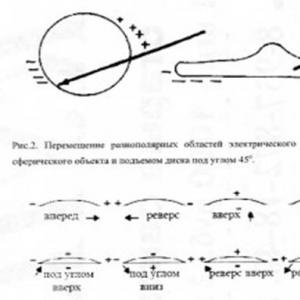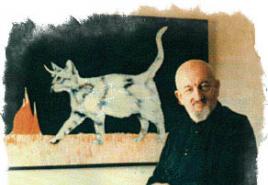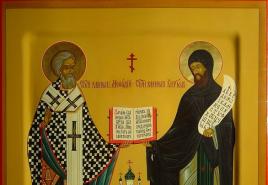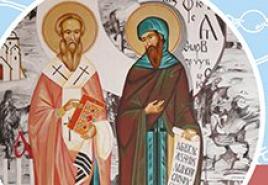Works in which a person opposes society. Essay-reasoning on the topic: "Man and society"
FIPI commentary on the direction "Man and Society" :
"For the topics of this direction, the view of a person as a representative of society is relevant. Society largely forms a person, but a person is also able to influence society. The topics will allow us to consider the problem of the individual and society from different angles: from the point of view of their harmonious interaction, complex confrontation or irreconcilable conflict. It is equally important to think about the conditions under which a person must obey social laws, and society must take into account the interests of each person. Literature has always shown interest in the problem of the relationship between man and society, the creative or destructive consequences of this interaction for the individual and for human civilization.
Recommendations for students:
The table contains works that reflect any concept related to the direction "Man and Society". You DO NOT NEED to read all of the titles listed. You may have already read a lot. Your task is to revise your reading knowledge and, if there is a lack of arguments in one direction or another, fill in the gaps. In this case, you will need this information. Take it as a guide in the vast world literary works. Please note: the table shows only a part of the works in which the problems we need are present. This does not mean at all that you cannot bring completely different arguments in your works. For convenience, each work is accompanied by small explanations (the third column of the table), which will help you navigate exactly how, through which characters, you will need to rely on literary material (the second mandatory criterion when evaluating a final essay)
An approximate list of literary works and carriers of problems in the direction of "Man and Society"
| Direction | Approximate list of literary works | Carriers of the problem |
|---|---|---|
| Human and society | A. S. Griboyedov "Woe from Wit" | Chatsky challenges the Famus society |
| A. S. Pushkin "Eugene Onegin" | Eugene Onegin, Tatyana Larina- representatives of a secular society - become hostages of the laws of this society. | |
| M. Yu. Lermontov "A Hero of Our Time" | Pechorin- a reflection of all the vices of the younger generation of his time. | |
| I. A. Goncharov "Oblomov" | Oblomov, Stolz- representatives of two types generated by society. Oblomov is a product of a passing era, Stolz is a new type. | |
| A. N. Ostrovsky. "Storm" | Katerina- a ray of light in the "dark kingdom" of Kabanikh and Wild. | |
| A. P. Chekhov. "The Man in the Case". | Teacher Belikov with his attitude to life, he poisons the life of everyone around him, and his death is considered by society as getting rid of something difficult | |
| A. I. Kuprin "Olesya" | The love of a "natural man" ( Olesya) and human civilization Ivan Timofeevich couldn't stand the test public opinion and social organization. | |
| V. Bykov "Raid" | Fedor Rovba- a victim of a society living in a difficult period of collectivization and repression. | |
| A. Solzhenitsyn "One Day in the Life of Ivan Denisovich" | Ivan Denisovich Shukhov- a victim of Stalin's repressions. | |
| R. Brdbury. "A Sound of Thunder" | The responsibility of each person for the fate of the whole society. | |
| M. Karim "Pardon" | Lubomir Zuh- a victim of war and martial law. |
"Man and Society" is one of the topics of the final essay on literature for 2019 graduates. From what positions can these two concepts be considered in the work?
For example, you can write about the individual and society, about their interaction, both about agreement and about opposition. Sample ideas that may come up in this case are varied. This is a person as a part of society, the impossibility of his existence outside society, and the influence of society on something related to a person: his opinion, tastes, life position. You can also consider the confrontation or conflict of a single individual and society, in which case it would be useful to give examples from life, history or literature in the essay. This will not only make the work less boring, but will also give you a chance to increase your score.
Another option for writing about in an essay is the ability or, conversely, the inability to devote one's life to public interests, philanthropy and its opposite - misanthropy. Or, perhaps, in your work you want to consider in detail the issue of social norms and laws, morality, the mutual responsibility of society to a person and a person to society for everything past and future. An essay dedicated to a person and society in the state or historical plan, the role of the individual (concrete or abstract) in history will also be interesting.
(The image shows a fragment of the painting by Alexander Deineka "Stakhanovites")
Man and society, their interaction is the most relevant topic in the works of Russian literature. Society is a part of the world that is always evolving. It has its own traditions, values, time frames. Society has its own unit - a person. He does not have the opportunity to choose the association where he lives. Being born, he already becomes a part of society. This society influences the formation of personality, lifestyle, interests of a person. How is the pressure of society carried out on a separate individuality? In the works of Russian literature, the problem of “man and society” is highlighted:

(Illustration for L.N. Tolstoy "War and Peace")
Tolstoy in the novel "War and Peace" shows that the nature of high society in Russia is dual. The reader has the opportunity to look at the high society of St. Petersburg, to observe his life. He also opens up a whole world with its own foundations and laws. However, the author clearly highlights the unnaturalness of high relationships. Elegant ladies put on their smiles, they are pale and cold, and inside there is only indifference and emptiness. At high-society events, foreign news is often discussed. A man who knows how to think will quickly get bored here and disappointed in the pomposity of the masters. Tolstoy also clearly draws representatives of the upper class, who are distinguished by sensitivity and nobility. We are talking about Natasha Rostova, Andrei Bolkonsky, Pierre Bezukhov. They are smart, interested in people, the world as a whole. They are the absolute opposite of the dead, which are found in the salons of St. Petersburg. But each of the above did not feel at ease in high society. They were deceived and could be dishonored. They are individual, have nothing to do with a hypocritical, gray society.

(Illustration for F. Dostoevsky "Crime and Punishment")
The novel “Crime and Punishment”, written by Dostoevsky, tells how society can influence an ordinary citizen, his actions. Raskolnikov wanted to kill the pawnbroker. It was not unreasonable. The first reason is the personality of Rodion, his roots. Far from the last role in this was played by a society that was mired in sins and poverty. Raskolnikov was also poor, he sympathized with other people who were suffering. However, he decided to commit a crime. The society from the story “Crime and Punishment” valued only money, forgetting about high morality. Nothing else made sense to them. Sonya Marmeladova was a simple girl who became a prostitute. This happened because of the need to earn money to feed the family. The father of this heroine drinks heavily and sits in taverns where human souls rot. Moneybags, in turn, revel in the wealth that has been earned through lives ordinary people. Dostoevsky proves that society in any case affects a person, his life. You can't be free while in society.
(Illustration for M. Bulgakov "The Master and Margarita")
Bulgakov, with the help of the novel The Master and Margarita, raised the question of the individual, his presence in society. The main character, the Master, is a real genius who managed to write an incredible novel. But after the publication of the hero, they begin to persecute him, they did not recognize him. Who sends him pamphlets, reviews filled with rage? This is a society of graphomaniacs, people who are jealous and are pseudo-writers. The author shows this society as insidious and caustic. It constantly poisons, attacks the Master, which provokes the destruction of a magnificent creation. As a result, the genius ends up in a madhouse. Now he does not belong to the nasty bunch, his new world- This is Margarita. It is in this society that the Master rests his soul.
Thus, whoever a person is, whatever he is, but his individual characteristics and qualities are needed for the benefit of the society in which a person lives and works. We can safely say that if there is an ideal formula, then it is a complete and two-way relationship between a person and society.
Man is the main element of society, which constantly interacts with him. From early childhood, we begin to socialize, adapt and live according to the rules established in society. In very ancient times, the philosopher Aristotle called man a "social animal." However, society does not always have a beneficial effect on the individual, often under the influence of society, a person loses his individuality.
I recall Kuprin's story "Olesya", where the heroine becomes a victim of social prejudices. The peasants consider her a witch, as she lives in the forest and collects medicinal herbs. People hate the unfortunate only because she is different from them. She tried to get closer to the team for the love of young man, as a result, the girl leaves the secluded region and goes to church. But nothing good came of it - the crowd attacked her and almost killed her. This is how the desire to “make friends” with society almost ended in tragedy for the heroine, and such treatment often makes a person submit to pressure and become like everyone else. Olesya escaped from such a fate, but not everyone can apply this radical method.
The inhabitants of the rooming house, the heroes of Maxim Gorky's play "At the Bottom", have nowhere to run. Each of them is a good person in itself, but all together the people of the bottom formed a cesspool, from which it is impossible for any of them to get out. For example, Satin was a completely successful and prosperous person, but, having punished his sister's offender, he received a punishment in the form of imprisonment. However, even while in prison, this man retained his dignity, he served time, and when he got out, he found that he was no longer considered a person, and all normal people turned their backs on him. In order not to die of hunger, he was forced to continue walking along a crooked path. Yes, one social group she ruined him with her indifference, while the other dragged him into her vicious nets, preventing him from being cleansed. Satin became a victim of a society that thinks in prejudices and patterns.
In real life, a person often also has to deal with the problem of social relations. Sometimes we stubbornly try to fight the point of view and behavior of the majority, but more often it turns out to be easier and more convenient to accept the public point of view. I believe that, no matter what, we should strive to change society for the better, while not being afraid of reproaches and censures from its side. Only then can we hope for progress.
Together with the article “Essay on the topic “Man and Society” they read:
The material was prepared by Natalya Alexandrovna Zubova, the creator of the online school "SAMARUS".
Essay on the topic: "Man and Society"
A person interacts with society throughout his life. That is why writers have addressed, address, and will continue addressing the topic “Man and Society”.
Many writers have tried to create a model of an ideal society that would be built on respect, in which the potential of each person would be revealed. This is how social utopias were created. A. Sumarokov wrote the story “The Dream of a Happy Society”, in which the sovereign and government authorities in the country are guided by the principle of common good. Every person dreams of living in such a society!
Dreams of an ideal society are beautiful, but reality dispels them. Writers come to write dystopias that tell about a society in which negative development trends have prevailed. One of my favorite works is D. Orwell's novel "1984". It describes the life of society under a totalitarian regime. It is not surprising that in the socialist countries the work more than once fell victim to censorship. In my opinion, this is the most terrible book: the authorities seek to control the whole life of a person, down to his thoughts. Power makes a living person a robot. Terrible is the fate of those who are against this system!
The contradiction between society and the individual is vividly described in the novel by F.M. Dostoevsky "Crime and Punishment". Raskolnikov is a student, and, as usual, with financial problems. He decides to kill an old pawnbroker, who for Raskolnikov is the personification of the social injustice of Petersburg in the 19th century. He decides to take from the rich and give to the poor. That is, he sought to make life better. But does the end justify the means?
Raskolnikov could continue his studies, find a job. It was worth trying - and a normal future would open before him. But he chose a different path. The confrontation between Raskolnikov's personality and society ended in defeat for the individual.
Man and society are inseparable components of being. It is always difficult for a person who stands out from the crowd. Unfortunately, it is the crowd that determines the nature of society.
Man and Society is a new direction for earnest writing in 2017-2018. To understand the essence of the problem, you need to pick up a few precise arguments and examples from the literature. The best writers of all time will help us with this. Among the main arguments, the following points can be distinguished: Harmonious connection between society and man. Why is this connection so important? Confrontation between man and society. What is it based on? What are the main problems? Conflict between man and society. Is this an eternal conflict? Can it be passed or will it remain so for ages? In what cases is society obliged to protect a person and protect his interests? Where is a person indebted to society? When should he serve the community? It is impossible to escape from the problem of man and society, since we are each at the epicenter of events. Our main task is to understand the principles of these relations as early as possible and move in the right direction. After all, we will not see the result of our actions soon. Years will pass, and only then will we understand whether we were right or wrong all the time. There are many examples in the literature about the relationship between man and society. For example, Eugene Onegin was so afraid of outside opinion that he was ready to participate in a duel with his friend, with a young guy who was going to get married, with a man whom he set up himself. Also in this final essay, you can show examples of when society was unhealthy and one person had to go against it. In Turgenev's work "Mumu" we observe how the serf mode completely distorted the normal relations between man and society. There could not be born something normal and adequate. In the work of Tolstoy "After the Ball" also showed a similar picture. The first scene is a wonderful ball where everyone is nice and kind. And the second scene is a terrible execution and bullying that comes from the orders of "nice" people. I think we are already school age should think about the problem of man and society. Only in this way can we build something strong and powerful.
Source: http://www.kritika24.ru/page.php?id=13280
EXAMPLES OF ESSAYS ON THE THEMATIC DIRECTION "INDIVIDUAL AND SOCIETY"
EXAMPLES OF SCHOOL ESSAYS ON THE TOPIC "INDIVIDUAL AND SOCIETY"
The problem of the relationship between man and society has always occupied the best minds of mankind. Many philosophers and writers tried to find or create that ideal society in which the potential of each of its members would be revealed, where each individual would be treated with respect and understanding, in a word, to create a social utopia.
But the last centuries have shown that no matter how beautiful dreams are, reality always dispels them. Many scientists believe that the best social structure was in city-states. Ancient Greece and that since then nothing like it has been created.
However, I am sure that everyone man of sense should try to contribute to the improvement of relations in society. There are several ways to do this.
One of them, the path of enlightenment writers, is to gradually change the worldview of readers, to reform the very system of values. Thus, D. Defoe, who showed with his work “Robinson Crusoe” that an individual human person can really do a lot, tried to help society, J. Swift, who clearly depicts social injustice in the novel “Gulliver’s Travels” and offers ways of salvation, and others.
But there is another way, which throughout history has been resorted to, perhaps too often: radical, that is, revolutionary. Such a way out is inevitable when the contradictions between society and the individual have intensified so much that they can no longer be resolved by negotiations. Examples of such situations are the bourgeois revolutions in England and France.
In literature, the second, radical, method was most clearly expressed, in my opinion, in the novel by F.M. Dostoevsky "Crime and Punishment". Student Raskolnikov, whose life cannot be called easy, decides to kill an old money-lender, who for him personifies all the social injustice of the reality of Petersburg in the 19th century. To take away from the rich and give to the poor is the goal of his idea. By the way, this was also the goal of the Bolsheviks, who also sought to improve the situation of people, so that the one who “was a nobody” would become “everyone”, without thinking, however, that it’s impossible to just endow a person with abilities and talent. In principle, the goal of making life fairer is noble. But should we forget about the means by which this is achieved?
Raskolnikov had another opportunity. He could continue his studies, start giving private lessons, the future was open to him. But that would require too much work and effort. It would be much easier to kill the old woman, rob her and start doing good deeds. Fortunately for Raskolnikov, he is too smart and begins to doubt his "rightness" (the crime led him to hard labor, but then comes an epiphany).
The confrontation between the personality of Raskolnikov and the society of St. Petersburg in the 60s of the XIX century ended in the defeat of the individual. A person who stands out from society is generally hard in life. And the problem is often not so much in the society itself, but in the crowd, crushing the personality and turning bright colors into gray.
One of the classics once said that each person individually is wise, but the crowd is stupid. But, unfortunately, it is the crowd that determines the nature of our society. Therefore, until the moment when there is harmony in relations between the individual and society, if this, of course, ever comes at all, for many, many more years.
Essay-reasoning on the thematic direction Man and society
For each person, the society in which he rotates is important. Isn't man himself responsible for his actions? Of course, by myself, but we all, one way or another, depend on those who are nearby, just like they depend on us. Sometimes it is the environment that dictates our actions, because the law of collective decision works. How often in life one has to observe changes in human character and behavior, how sometimes people change quickly depending on their environment. That is why parents always make sure that the child is friends with good people. Surrounded by decent educated people, everyone tries to be no worse. IN bad company a person is ready to forgive himself not only minor shortcomings, but also unworthy deeds. After all, society does not condemn this, and sometimes even encourages evil. Maybe a person would never have discovered the worst traits in himself if bad society and environment had not contributed to this.
This is exactly the situation that Panas Mirny described in his novel “Do oxen roar when the manger is full?”. After all, when Chipka ( main character novel) made friends with dubious people - Lushnya, Motnya and Rat, then all the good that was in him disappeared somewhere. Instead, he became cynical and evil, beginning his bad deeds with theft, and then moved on to robbery. The writer paints a vivid picture of the moral fall of man. The author shows us how his so-called comrades get drunk in Chipka's house. And Chipka himself does not pay attention to the fact that his comrades insult his mother. He still yells at her. It was his shameful choice, which became fatal for Chipka. He soon reached the point of murder. Nothing human was left in him, since he allowed himself to follow unworthy people.
Of course, the environment of a person affects his character and his personality as a whole. But how strong and decisive this influence will be depends only on the person himself. A person must have his own inner core, which will help him not to break when the people around him begin to put pressure on him. It may be difficult and difficult for the child to resist the influence of his environment. And in this case, adults should help the child overcome Negative influence and develop that saving core in yourself. Unlike a child, an adult always has the right to choose. He can choose his goals and his environment. Only from him will depend on what his life will be. Each person has only one life, which he lives here and now. We have the right to choose the friends we deserve. And you should always choose those who appreciate you. And not those who underestimate you. Because it makes no sense to choose those who do not share our successes and for whom we are needed only for the sake of our own self-affirmation.
Plan
Introduction
The problem of the new man in Griboedov's comedy Woe from Wit
The theme of a strong man in the work of N.A. Nekrasov
The problem of being lonely extra person V secular society in poetry and prose M.Yu. Lermontov
The problem of the poor man in the novel by F.M. Dostoevsky Crime and Punishment
The theme of folk character in the tragedy of A.N. Ostrovsky Thunderstorm
The theme of the people in the novel by L.N. Tolstoy War and Peace
The theme of society in the work of M.E. Saltykov-Shchedrin Lord Golovlev
Problem little man in stories and plays by A.P. Chekhov
Conclusion
List of used literature
Introduction
man society Russian literature
Russian literature XIX century brought to the whole world the creations of such brilliant writers and poets as A.S. Griboedov, A.S. Pushkin, M.Yu. Lermontov, N.V. Gogol, I.A. Goncharov, A.N. Ostrovsky, I.S. Turgenev, N.A. Nekrasov, M.E. Saltykov-Shchedrin, F.M. Dostoevsky, L.N. Tolstoy, A.P. Chekhov and others.
In many works of these and other Russian authors of the 19th century, the themes of man, personality, people developed; personality was opposed to society (Woe from the Wit of A.S. Griboedov), the problem of an extra (lonely) person was demonstrated (Eugene Onegin A.S. Pushkin, Hero of Our Time M.Yu. Lermontov), a poor person (Crime and Punishment F.M. . Dostoevsky), problems of the people (War and Peace of L.N. Tolstoy) and others. In most of the works, as part of the development of the theme of man and society, the authors demonstrated the tragedy of the individual.
The purpose of this essay is to consider the works of Russian authors of the 19th century, to study their understanding of the problem of man and society, the peculiarities of their perception of these problems. The study used critical literature, as well as the works of writers and poets of the Silver Age.
The problem of the new man in Griboedov's comedy Woe from Wit
Consider, for example, a comedy by A.S. Griboedova Woe from Wit, which played an outstanding role in the socio-political and moral education of several generations of Russian people. It armed them to fight against violence and arbitrariness, meanness and ignorance in the name of freedom and reason, in the name of the triumph of advanced ideas and genuine culture. In the image of the protagonist of the comedy Chatsky, Griboyedov for the first time in Russian literature showed a new person, inspired by lofty ideas, revolting against a reactionary society in defense of freedom, humanity, mind and culture, cultivating a new morality, developing A New Look on the world and on human relations.
The image of Chatsky - a new, intelligent, developed person - is opposed to the Famus society. In Woe from Wit, all Famusov's guests simply copy the customs, habits and outfits of French milliners and rootless visiting rogues who got rich on Russian bread. All of them speak a mixture of French and Nizhny Novgorod and go dumb with delight at the sight of any visiting Frenchman from Bordeaux. Through the mouth of Chatsky, Griboyedov, with the greatest passion, exposed this unworthy servility to a stranger and contempt for his own:
So that the Lord destroyed this unclean spirit
Empty, slavish, blind imitation;
So that he would plant a spark in someone with a soul.
Who could by word and example
Hold us like a strong rein,
From pathetic nausea, on the side of a stranger.
Chatsky loves his people very much, but not the Famus society of landowners and officials, but the Russian people, hardworking, wise, powerful. Distinctive feature Chatsky as a strong person in contrast to the prim Famus society lies in the fullness of feelings. In everything he shows true passion, he is always ardent in soul. He is hot, witty, eloquent, full of life, impatient. At the same time, Chatsky is the only open positive character in Griboyedov's comedy. But it is impossible to call it exceptional and lonely. He is young, romantic, passionate, he has like-minded people: for example, professors Pedagogical Institute, who, according to Princess Tugoukhovskaya, practice schism and unbelief, these are crazy people inclined to learning, this is the nephew of the princess, Prince Fedor, a chemist and botanist. Chatsky defends the rights of a person to freely choose his occupation: travel, live in the countryside, focus his mind on science or devote himself to creative, high and beautiful arts.
Chatsky defends the folk society and ridicules the Famus society, its life and behavior in his monologue:
Are not these rich in robbery?
They found protection from court in friends, in kinship.
Magnificent building chambers,
Where they overflow in feasts and prodigality.
It can be concluded that Chatsky in comedy represents the young thinking generation of Russian society, its best part. A. I. Herzen wrote about Chatsky: The image of Chatsky, sad, restless in his irony, trembling with indignation, devoted to a dreamy ideal, appears at the last moment of the reign of Alexander I, on the eve of the uprising on St. Isaac's Square. This is a Decembrist, this is a man who completes the era of Peter the Great and tries to see, at least on the horizon, the promised land ....
The theme of a strong man in the work of N.A. Nekrasov








